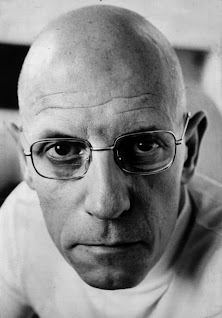D. H. Lawrence despised false notions of childhood purity and innocence, as if children were entirely ignorant of their own bodies and pleasures; "even in a child of three, rudimentary sex throws strange shadows on the wall".*
Having said that, he insists that the sexuality of pre-pubescent children is distinct from that of adults and that if the latter should intervene at all in the sexual behaviour of the former it is only as guarantors of this specificity.
Thus, in an interesting passage in Fantasia whilst he writes in favour of allowing children to witness the passions of adult life (and animals fucking), he strongly opposes formal sex education:
"It is ten times criminal to tell young children facts about sex, or to implicate them in adult relationships. A child has a strong evanescent sex consciousness. It instinctively writes impossible words on back walls. But this is not a fully conscious mental act. It is a kind of dream act - quite natural. The child's curious, shadowy, indecent sex-knowledge is quite in the course of nature. And does nobody any harm at all. Adults had far better not notice it. But if a child sees a cockerel tread a hen, or two dogs coupling, well and good. It should see these things. Only, without comment. Let nothing be exaggeratedly hidden. By instinct, let us preserve the decent privacies. But if a child occasionally sees its parent nude, taking a bath, all the better. Or even sitting in the W. C. Exaggerated secrecy is bad. But indecent exposure is also very bad. But worst of all is dragging in the mental consciousness of these shadowy dynamic realities." [125-26]
For Lawrence, puberty - which he explains in pollyanalytic terms of dynamic consciousness and the biological psyche - is an absolute and crucial dividing line: before it, sex is "submerged, nascent, incipient only" [134]; after it, sex is not quite the be-all and end-all, but a hugely important factor nevertheless and "an element of sex enters into all human activity" [66].
So vital is puberty for Lawrence, that he strongly advocates that it is marked by some form of initiation, for both sexes, although his primary interest seems to be the process of turning boys into men:
"Boys should be taken away from their mother and sisters [...] at adolescence. They should be given into some real manly charge. And there should be some actual initiation into sex life. Perhaps like the savages, who make the boy [...] suffer and endure terrible hardships, to make a great dynamic effect on the consciousness, a terrible dynamic sense of change in the very being. In short, a long, violent initiation, from which the lad emerges [...] cut off forever from childhood [...] [139]
I don't quite know what Lawrence has in mind here, or to whom he is referring when he speaks of savages. I do know, however, that he read various anthropological accounts of initiation ceremonies, so perhaps he was thinking of those tribal peoples who practice circumcision on adolescent boys, or engage in acts of ritualised homosexuality, including semen ingestion via the fellating of elders.
For the cruel truth is that in societies which do practice such rites, the transtion from the biological state of childhood into the socio-sexual status of adulthood is never completed without tears and bloodshed ...
Notes
* D. H. Lawrence, Fantasia of the Unconscious, ed. Bruce Steele, (Cambridge University Press, 2004), p. 138. Future page references to this work will be given directly in the post.



